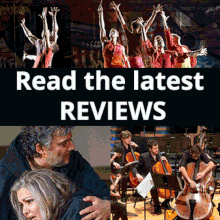A colleague of Sergei Rachmaninov’s recalled the pattern of his days in Moscow in his young adulthood. “Waking at seven he took a cab to the Andronikov Monastery, where he would stand through the entire liturgy listening to ancient strict singing from the Oktoechos (books of Orthodox chants), performed by the monks in parallel fifths, which never failed to make a strong impression on him.” Then he worked through the day, went to concerts in the evening, and dined at a restaurant “where he would stay late listening to the gypsy singers”. His day was framed by very different types of vocal music, and gypsies and Orthodox chant would both feature in his compositions. His workday would also involve singers in his spells as an opera conductor, and he accompanied vocal recitals, not least when introducing his own songs to the public.
Rachmaninov’s presence in the concert hall rests largely upon works for piano and orchestra, three of which appeared in the top ten most-performed concertos in 2022. Yet there is much vocal music, including two choral masterpieces, one sacred and one secular, over 80 songs, and three operas: Aleko, The Miserly Knight and Francesca da Rimini. All were early, short operas, influenced by the recent success in Russia of Mascagni’s Cavalleria rusticana.
Aleko, based on the narrative poem The Gypsies by Alexander Pushkin (1799-1837), was Rachmaninov’s 1892 Moscow Conservatory graduation assignment. It earned him top marks and the rarely awarded Great Gold Medal. Its 1893 premiere at the Bolshoi greatly impressed Tchaikovsky, who advised Rachmaninov on dealing with publishers, leading to a substantial fee for his first few publications. Aleko is a Russian who has fallen for a gypsy woman, Zemfira, had a child with her, and joined the gypsy encampment. But she takes a new gypsy lover. The heartbroken Aleko kills them both and is driven away by the gypsies. The composer’s lifelong friend, the great bass singer Fyodor Chaliapin, portrayed the character of Aleko in its 1899 St Petersburg production, and frequently performed Aleko’s Cavatina, where Aleko laments his loss of Zemfira’s love, and which in 1929 he recorded. Rachmaninov admired the pathos of his characterisation, saying Chaliapin was “three heads above anyone else”.
Rachmaninov soon knew operatic performance from the inside, with conducting positions first at the Mamontov Private Russian Opera Company in its 1897–98 season, then at the Bolshoi (1904–06). He was so inexperienced that his first Mamontov rehearsal came to grief as he did not realise he needed to cue the singers, assuming they knew what to sing and when. But he learned quickly, introducing such novelties (for Russia) as himself coaching the singers at the piano. The Russian opera conductor was seated behind the prompt box, the instrumentalists scattered around him. Rachmaninov moved the podium back to embrace the whole orchestra and stage. He even, despite being a smoker himself, forbade players from popping out for a cigarette break whenever they had a pause. Professionalism rose and critics noticed the effects, including the transformation in the orchestral sound.
But there was intimate music-making also, for Rachmaninov wrote songs with piano from his apprenticeship almost until he left Russia. It has been claimed that no one loves poetry as a Russian loves poetry, but Rachmaninov seems to have always regarded poems as potential song texts, to the extent of asking others to send possible texts for his consideration. His own favourites were Pushkin and his contemporaries and successors in Russia’s “Golden Age” of Romantic poetry. Only in his last collection, Op.38 from 1916, did Rachmaninov select poems from among his own contemporaries, the “Silver Age” poets, having previously been unsympathetic to their work.
Only a few of his songs are heard in recitals by non-Russian singers, and one such is Do not sing, beautiful maiden from his first collection. The poem by Pushkin is an appeal to cease singing “melodies of Georgia” which recall “the steppe, the night and the moonlight, the features of a maiden, sad and far away.” The song begins with a piano prelude, and the voice starts in a recitative-like way. The sung melisma in the first verse is taken from the prelude and when it returns is given to the piano once more. The singer must manage both a crescendo to fortissimo for the climax then a pianissimo chromatic descent at the end for the last lines.
The composer’s model was the romances of Tchaikovsky, but rather more of Rachmaninov the pianist is heard in Spring Waters, from the 12 Romances of 1896. The coming of spring is a frequently poeticised event in Russian art, for the power of release from winter’s grip. Rachmaninov was later to write a Spring Cantata. Here, the poem by Fyodor Tyutchev (1803-73), a contemporary of Pushkin’s, tells that while “The fields are still white with snow” the newly thawed waters “are proclaiming Spring”, and the rushing torrents are heard in the turbulent keyboard writing, with its virtuoso close.
But not all songs are based on poems. Rachmaninov greatly admired the stories and plays of Anton Chekhov, who attended one of the song recitals the composer gave with Chaliapin in Crimea in 1900. Afterwards the playwright went backstage and said to Rachmaninov “I have been looking at you, young man. You have a wonderful face. You will be a great man.” Chekhov’s acquaintance led to discussions of collaboration with Rachmaninov on an opera, and Rachmaninov’s song We shall rest (Op.26 no.3) sets the last section of the speech that ends Chekhov’s Uncle Vanya. But a Chekhov-Rachmaninov opera remained Russian music’s greatest ‘what might have been’.
The best-known of all Rachmaninov’s songs, his Vocalise, has no text at all. There are three parts to the wordless song, and parts one and two are repeated. If those repeats are observed it runs to seven minutes, with numerous expressive and dynamic marks to observe, over a range of two octaves. No text does not mean no meaning – the opening phrase derives from the Dies irae (Day of Wrath) chant that obsessed Rachmaninov, and the melody resembles a keening lament. There are many instrumental arrangements of the Vocalise and a version by the composer for soprano and orchestra. This performance is from a gala at the Royal Opera House, Covent Garden.
Choral music is not abundant in Rachmaninov’s catalogue, just six of his 46 opus numbers. But the composer’s favourite among all his output was The Bells (1913), a four movement choral symphony for mixed chorus, three soloists and large orchestra. Rachmaninov said “the sound of bells dominated all the cities of Russia I used to know, Novgorod, Kiev, Moscow” and their clamour gets into his music for one and two pianos. Based on the poem of Edgar Allan Poe, The Bells’ four sections are devoted to silver sleigh bells, golden wedding bells, alarm bells and funeral bells. The golden warmth of the wedding bell movement, with a rapturous soprano solo, is impressively sustained over its ten minutes.
Those early morning trips to the Andronikov Monastery reaped dividends in 1915 with two large liturgical works, The Liturgy of St John Chrysostom and The All-Night Vigil (often known as the Vespers). The latter is Rachmaninov’s finest choral work, a pinnacle of Russian liturgical music. Written for four-part unaccompanied mixed chorus, its 15 movements would be sung in a liturgical context through the night, punctuated by other elements of a service. But it also works well in concert, especially in a large ecclesiastical space. Its fifth movement has a solo tenor voice singing the Nunc dimittis: “Lord, now lettest thou thy servant depart in peace”. Its beautifully devotional melody is heard over swaying, consolatory choral chords. There is even a hint of the Dies irae. Rachmaninov wanted this sung at his funeral, which proved impracticable. Perhaps basses with a secure and sustained bottom B flat, sealing the slow descent that closes the work, were not in ready supply. The first conductor of the piece wondered where he would find such basses even in Russia, telling the composer “they are as rare as asparagus at Christmas”.




